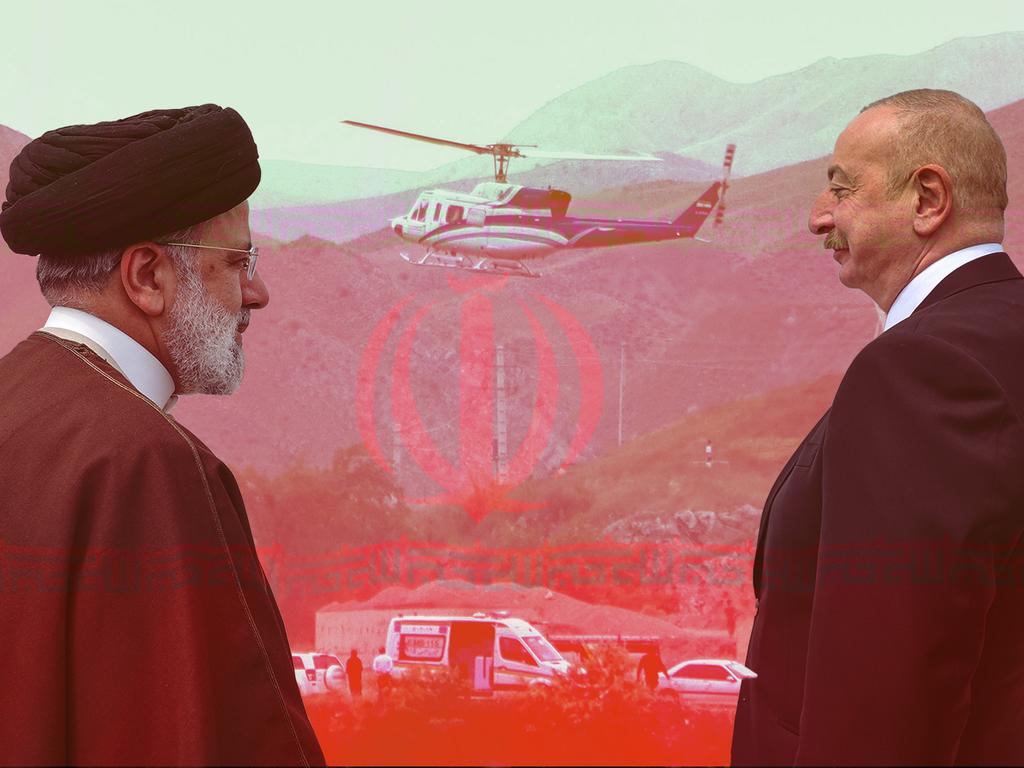Chopper crash death of Iran’s ‘Butcher of Tehran’ Ebrahim Raisi sets the Middle East on edge
The Middle East is on a knife-edge after Iran’s hardline President Ebrahim Raisi was killed in a helicopter crash at a time when his country is stepping up its confrontations with Israel and the West.

The Middle East is on a knife-edge after Iran’s hardline President Ebrahim Raisi was killed in a helicopter crash at a time when his country is stepping up its confrontations with Israel and the West.
Iran state media confirmed that Mr Raisi and Iran’s Foreign Minister, Hossein Amir Abdollahian, were among the dead when their helicopter crashed in remote mountains near Iran’s northern border with Azerbaijan.
The incident occurred in poor weather conditions, but this did not stop rampant social media speculation that the crash was an act of sabotage by Iran’s opponents, such as Israel or the US, rather than an accident.
Even before the remote crash-site was discovered, Iran’s Supreme Leader Ali Khamenei urged calm on state television, saying there would be “no disruption” to the country’s operations.
“Senior officials are doing their work and I have advised them on the necessary points and all of the country’s operations will carry on smoothly and orderly,” Ayatollah Khamenei said. He praised Mr Raisi’s “inner purity, humility and eagerness to serve the people.”
The 63-year-old, who was elected in 2021, was a hardline religious conservative with a deep hatred of the West and considered a likely successor to the 85-year-old Supreme Leader.
The death of the man called The Butcher of Tehran for his role in suppressing opposition activists in the late 1980s sparked celebrations among many Iranians outside Iran, given his role in the brutal crackdown in late 2022 on protesters over women’s rights that left more than 500 people dead.
Yet there are fears his death could lead to greater instability in the Middle East, already convulsed by the Israel-Hamas war and the increasingly aggressive behaviour by Iran’s terror proxies in the region.

State media confirmed Mr Raisi’s death only after more than 15 hours of uncertainty when the helicopter had disappeared in mountainous terrain in bad weather near the city of Jolfa in the country’s north.
Mr Raisi had been inaugurating a joint dam project just before the accident.
Vision of the crash site showed the helicopter had disintegrated and caught fire on impact, leaving no survivors.
“We are in the process of transferring the bodies of the martyrs to Tabriz,” Red Crescent chief Pirhossein Koolivand told state TV, adding that “the search operations have come to an end”.
The Tehran Times published a full front-page headline “Martyrdom in the Line of Duty” with a pictorial of Mr Raisi and the Iranian flag. His death means there will be a special election within months for a new president, but such elections are considered to be rigged. The speculation is that Ayatollah Khamenei’s son Mojtaba will be the frontrunner.
Mr Raisi’s death comes at a time when he has overseen more aggressive Iranian activity in the Middle East since Hamas’s assault on Israelis on October 7.
Iran’s terror proxy Hezbollah in Lebanon has increased its attacks on northern Israel while Iran’s terror affiliates in Syria and Iraq have also launched attacks on US troops in those countries.

Iranian-backed Houthi rebels have also attacked international shipping in the Red Sea in a bid to disrupt global trade routes.
In April, Mr Raisi oversaw a massive attack by Iran on Israel – the country’s first direct attack on that nation – involving hundreds of missiles and drones in retaliation for an Israeli attack on Iranian forces in Syria.
Although Israel shot down most of Iran’s missiles and drones, the attack showed how brazen Iran had become under his presidency.
Mr Raisi enjoyed a close relationship with the Islamic Revolutionary Guard Corps, which for more than a decade has expanded Iran’s military influence overseas.
He was also a staunch advocate of Iran’s move towards a nuclear weapon capability and a strong opponent of the now-stalled nuclear deal in 2015 to restrict Iran’s nuclear program.
Mr Raisi, a former hard-line religious cleric, came of age during the country’s Islamic revolution and was a staunch opponent of moves to liberalise Iranian society.
Domestically, he was unpopular because of his violent 2022 crackdown against women who had been removing their head coverings in memory of 22-year-old Mahsa Amini, who died after being jailed for breaking hijab rules.








To join the conversation, please log in. Don't have an account? Register
Join the conversation, you are commenting as Logout